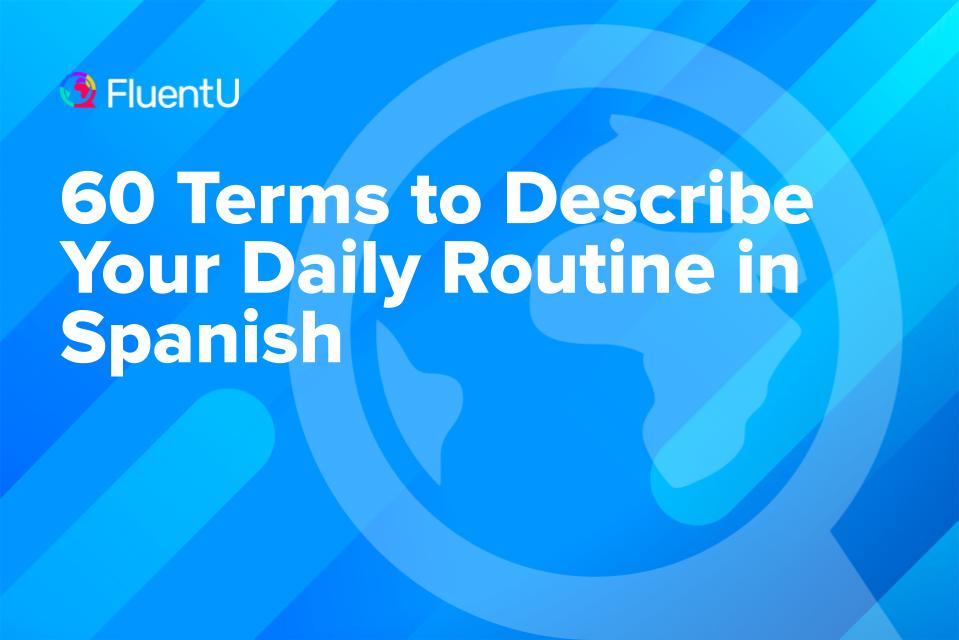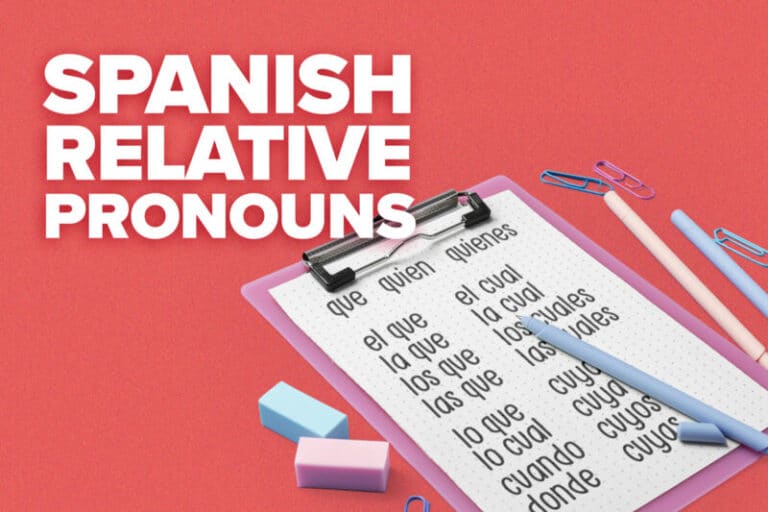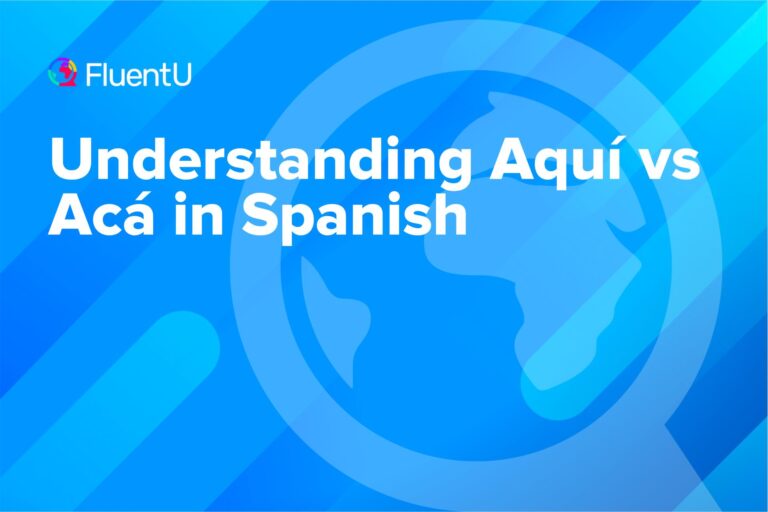Contents
60 Terms to Describe Your Daily Routine in Spanish

Travel phrases will come in handy when you’re gallivanting about in Spanish-speaking countries, and food words will help you navigate your way around even the most advanced Spanish-language restaurant menus.
But when it comes to vocabulary that you can use every day, there’s nothing quite like Spanish daily routine vocabulary.
Download: This blog post is available as a convenient and portable PDF that you can take anywhere. Click here to get a copy. (Download)
Morning Routine Spanish Vocabulary
| Spanish | English | Example |
|---|---|---|
| Despertarse | To wake up | Me despierto en la mañana. (I wake up in the morning.) |
| Levantarse | To get up | Me levanté a las ocho y media. (I got out of bed at eight thirty.) |
| Hacer la cama | To make the bed | Hago la cama todos los días. (I make the bed every day.) |
| Vestirse | To get dressed | Puedo vestirme muy rápido. (I can get dressed very fast.) |
| Ponerse | To put on (clothes) | Me pongo la camisa después de ducharme. (I put on my shirt after I shower.) |
| Afeitarse | To shave | Él tiene que afeitarse cada mañana. (He has to shave each morning.) |
| Maquillarse / pintarse | To put on makeup | No tengo tiempo para maquillarme en la mañana. (I don't have time to put makeup on in the morning.) |
| Ir a... | To go to... | Enrique va a la escuela a las siete. (Enrique goes to school at seven.) |
Hygiene Spanish Vocabulary
| Spanish | English | Example |
|---|---|---|
| Ducharse | To take a shower | Ella prefiere ducharse por la noche. (She prefers to shower at night.) |
| Bañarse | To take a bath | Tú te bañas cada mañana. (You take a bath each morning.) |
| Lavarse | To clean/wash oneself | Me lavo las manos después de ir al baño. (I wash my hands after going to the bathroom.) |
| Lavarse / cepillarse los dientes | To brush one's teeth | Me cepillo los dientes dos veces al día. (I brush my teeth twice a day.) |
| Cepillarse el pelo | To brush one's hair | Se cepilla el pelo antes de irse a la escuela. (She brushes her hair before leaving for school.) |
| Peinarse | To comb one's hair, to do your hair | No me gusta peinarme. (I don't like to comb my hair.) Mi madre me peina. (My mom does my hair.) |
Meal Time Spanish Vocabulary
| Spanish | English | Example |
|---|---|---|
| Comer | To eat | Comemos juntos una vez por semana. (We eat together once a week.) |
| Hacer la comida | To make food | Yo hago la comida cuando tengo hambre. (I make food when I'm hungry.) |
| Desayunar | To eat breakfast | ¿Te gustaría desayunar conmigo el viernes? (Would you like to eat breakfast with me on Friday?) |
| Almorzar | To eat lunch | Voy a almorzar con mis amigos cada semana. (I go and have lunch with my friends every week.) |
| Cenar | To eat dinner | Mis abuelos salen para cenar los viernes. (My grandparents go out for dinner on Fridays.) |
| Tomar un descanso | To rest, to take a break | Tomo un descanso a las cinco. (I take a break at 5.) |
| Merendar | To have an afternoon snack/tea | Los ingleses meriendan cada tarde. (The English have a tea break every afternoon.) |
| Picar | To snack on | Los niños pican papas fritas cuando llegan en la tarde. (The kids snack on potato chips when they arrive in the afternoon.) |
Bedtime Routine Spanish Vocabulary
| Spanish | English | Example |
|---|---|---|
| Llegar a casa | To arrive home | Llegué a casa a las once. (I got home at eleven.) |
| Quitarse la ropa | To take off one's clothes | Me quito la ropa después del trabajo. (I take my clothes off after work.) |
| Desvestirse | To undress oneself | Te desvistes antes de ducharte. (You get undressed before you shower.) |
| Desnudarse | To get naked | Ella se desnuda antes de ducharse. (She undresses before taking a shower.) |
| Dormirse | To fall asleep | Me duermo temprano. (I fall asleep early.) |
| Acostarse | To go to bed, to lie down | El niño se acuesta a las ocho. (The child goes to bed at 8.) |
Activity Routine Spanish Vocabulary
| Spanish | English | Example |
|---|---|---|
| Trabajar | To work | Me voy a trabajar a las ocho. (I go to work at 8.) |
| Estudiar | To study | Estudias treinta minutos cada día. (You study 30 minutes every day.) |
| Ver la televisión | To watch TV | Vemos la televisión mientras cenamos. (We watch TV while we eat dinner.) |
| Escuchar música | To listen to music | Ellos escuchan música a las 5 a. m. y lo odio. (They listen to music at 5AM and I hate it.) |
| Mandar mensajes | To send texts | Ella me manda mensajes después de trabajar cada noche. (She sends me texts after work every night.) |
| Leer | To read | Intento leer al menos quince minutos cada día. (I try to read at least 15 minutes a day.) |
Vocabulary for Adding Details to Your Routine
So we’ve got the main routine words down, but what if you want to describe them a little more—for example, tell someone when or how often you do said routine?
For this, knowing some Spanish adverbs of frequency and where to place them in a sentence will help.
Here are some adverbs and other vocabulary words that might come in handy for expressing your routine with a bit more accuracy.
| Spanish | English | Example |
|---|---|---|
| Día | Day | Trabajo cada día. (I work every day.) |
| Semana | Week | Trabajo durante la semana. (I work during the week.) |
| Mes | Month | Ella visita a su abuela una vez al mes. (She visits her grandma once a month.) |
| Año | Year | Tienes que ver el doctor una vez al año. (You have to see the doctor one time each year.) |
| Lunes | Monday | El lunes es el primer día de la semana laboral. (Monday is the first day of the work week.) |
| Martes | Tuesday | Mis padres salen a cenar los martes. (My parents go out for dinner on Tuesdays.) |
| Miércoles | Wednesday | Ella no trabaja los miércoles. (She doesn't work on Wednesdays.) |
| Jueves | Thursday | Necesitamos ir al supermercado el jueves. (We need to go to the supermarket on Thursday.) |
| Viernes | Friday | Hay una fiesta el viernes. (There's a party on Friday.) |
| Sábado | Saturday | ¿Quieres ir al cine el sábado? (Do you want to go to the movies on Saturday?) |
| Domingo | Sunday | Mi familia va a la iglesia los domingos. (My family goes to church on Sundays.) |
| A veces | Sometimes | A veces voy al aeropuerto y veo los aviones. (Sometimes I go to the airport and watch the planes.) |
| Normalmente | Normally | Normalmente voy al gym a las 5 p. m. (I normally go to the gym at 5pm.) |
| Cada | Each/every | Ella hace huevos cada mañana. (She makes eggs every morning.) |
| Hoy | Today | Hoy voy a escuela. (I'm going to school today.) |
| Mañana | Tomorrow | Ana tiene una entrevista mañana. (Ana has an interview tomorrow.) |
| Ayer | Yesterday | Ayer fui a trabajar después del desayuno. (I went to work after breakfast yesterday.) |
| Luego | Later | Nos vamos a juntar luego. (We're going to meet up later.) |
| Ahora | Now | Nos vamos ahora. (We're leaving now.) |
| Más tarde | Later | Ellos van a salir más tarde. (They're going to go out later.) |
| Antes de | Before | Leo antes de tener que ir al trabajo. (I read before I have to go to work.) |
| Después de | After | Vas a cocinar la cena después de la fiesta. (You're going to cook dinner after the party.) |
| Entonces | Then | Entonces entendí lo que había pasado. (Then I understood what had happened.) |
| Después | Then | Vamos a cenar y después iremos a bailar. (We're going to have dinner and then we're going dancing.) |
| Ya | Already | ¿Ya te cepillaste los dientes? (Did you brush your teeth already?) |
| Durante | During | Mi padre duerme durante sus reuniones de trabajo. (My dad sleeps during his work meetings.) |
If you want a little more practice with the days of the week, there’s a story-based lesson on our YouTube channel that could be helpful:
Reflexive Verbs and Daily Routine
You probably noticed that a lot of these words end in se, which means they’re reflexive verbs. This is the verb type we use when the agent of the action is acting on his or her own self.
When an agent is acting on someone else, we might still use pronouns like me, te and le to indicate who is being acted upon, but the verb is no longer reflexive.
Let’s look at the difference between despertar and despertarse (to wake up).
If we’re going to use the reflexive version of this verb, then the acting agent must be the same as who the agent is acting upon, so you’ll start with the reflexive infinitive verb despertarse and turn that into:
Me despierto (I wake up)
Te despiertas (You wake up)
Se despierta (He/she wakes up)
To indicate that someone is acting on someone else, you might have:
Ella despierta a Juan (She wakes up Juan)
Mi madre me despierta (My mother wakes me up)
Te despierto (I wake you up)
How to Practice Daily Routine Vocabulary
Now that we’ve gone over these new vocabulary words, let’s look at some different ways you can practice these words and a few different resources you can use:
- Create a daily journal. Write about what you’ve done each day, using these words to describe your own routine. As you write, you’ll become accustomed to describing your day with your new vocabulary words.
- Create flashcards. Flashcards are the tried-and-true method to learn vocabulary. You can create them by hand or use an app such as Anki.
- Listen to these words in use. This will help you learn the words and how to pronounce them correctly. You can listen to native speakers talking about daily routines in Spanish with podcasts and YouTube, or on FluentU if you want a little extra support.
FluentU takes authentic videos—like music videos, movie trailers, news and inspiring talks—and turns them into personalized language learning lessons.
You can try FluentU for free for 2 weeks. Check out the website or download the iOS app or Android app.
P.S. Click here to take advantage of our current sale! (Expires at the end of this month)

As you can see, everyday vocabulary doesn’t have to be boring.
With these great words and phrases you can use to describe your daily routine, every day!
Download: This blog post is available as a convenient and portable PDF that you can take anywhere. Click here to get a copy. (Download)
And One More Thing…
If you've made it this far that means you probably enjoy learning Spanish with engaging material and will then love FluentU.
Other sites use scripted content. FluentU uses a natural approach that helps you ease into the Spanish language and culture over time. You’ll learn Spanish as it’s actually spoken by real people.
FluentU has a wide variety of videos, as you can see here:

FluentU brings native videos within reach with interactive transcripts. You can tap on any word to look it up instantly. Every definition has examples that have been written to help you understand how the word is used. If you see an interesting word you don’t know, you can add it to a vocab list.

Review a complete interactive transcript under the Dialogue tab, and find words and phrases listed under Vocab.

Learn all the vocabulary in any video with FluentU’s robust learning engine. Swipe left or right to see more examples of the word you’re on.

The best part is that FluentU keeps track of the vocabulary that you’re learning, and gives you extra practice with difficult words. It'll even remind you when it’s time to review what you’ve learned. Every learner has a truly personalized experience, even if they’re learning with the same video.
Start using the FluentU website on your computer or tablet or, better yet, download the FluentU app from the iTunes or Google Play store. Click here to take advantage of our current sale! (Expires at the end of this month.)








